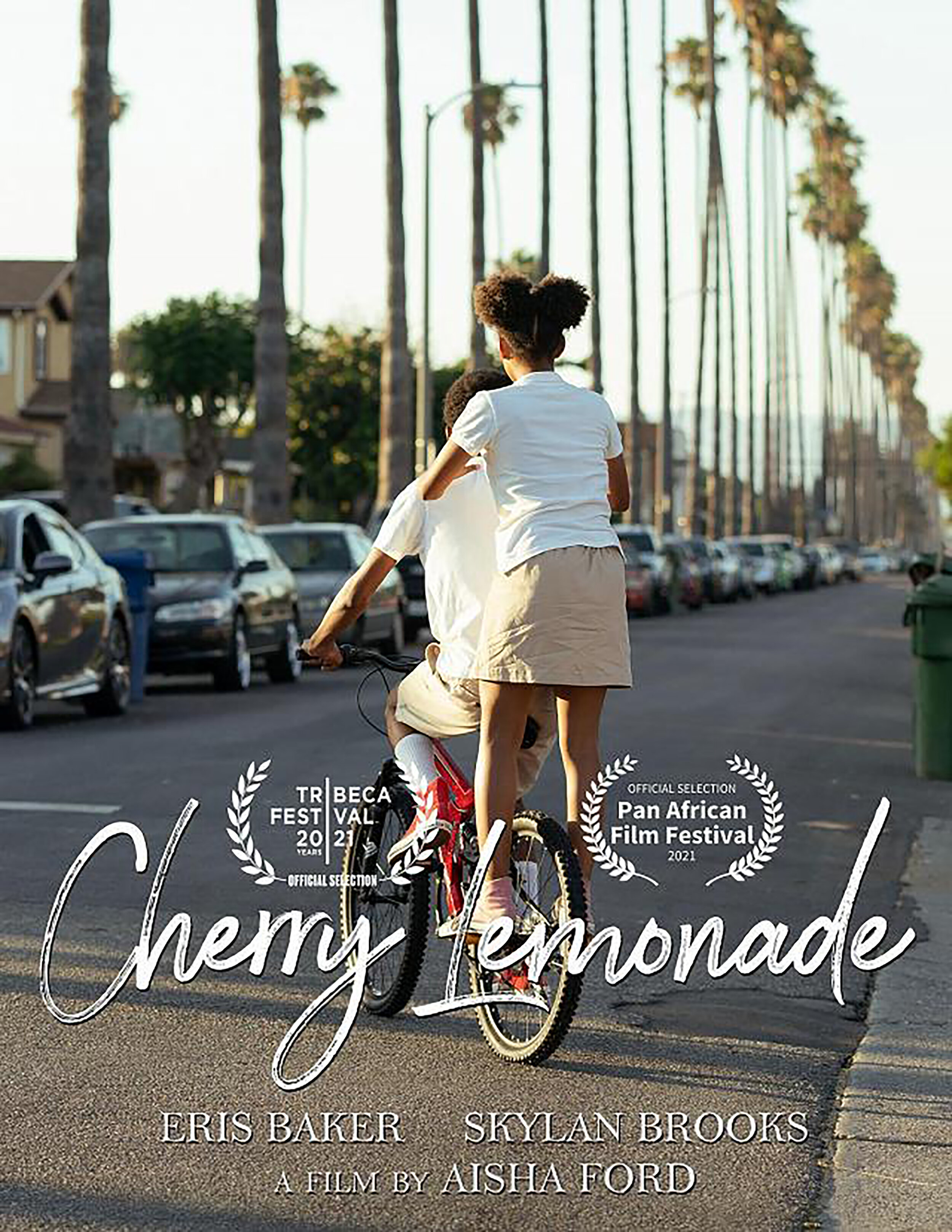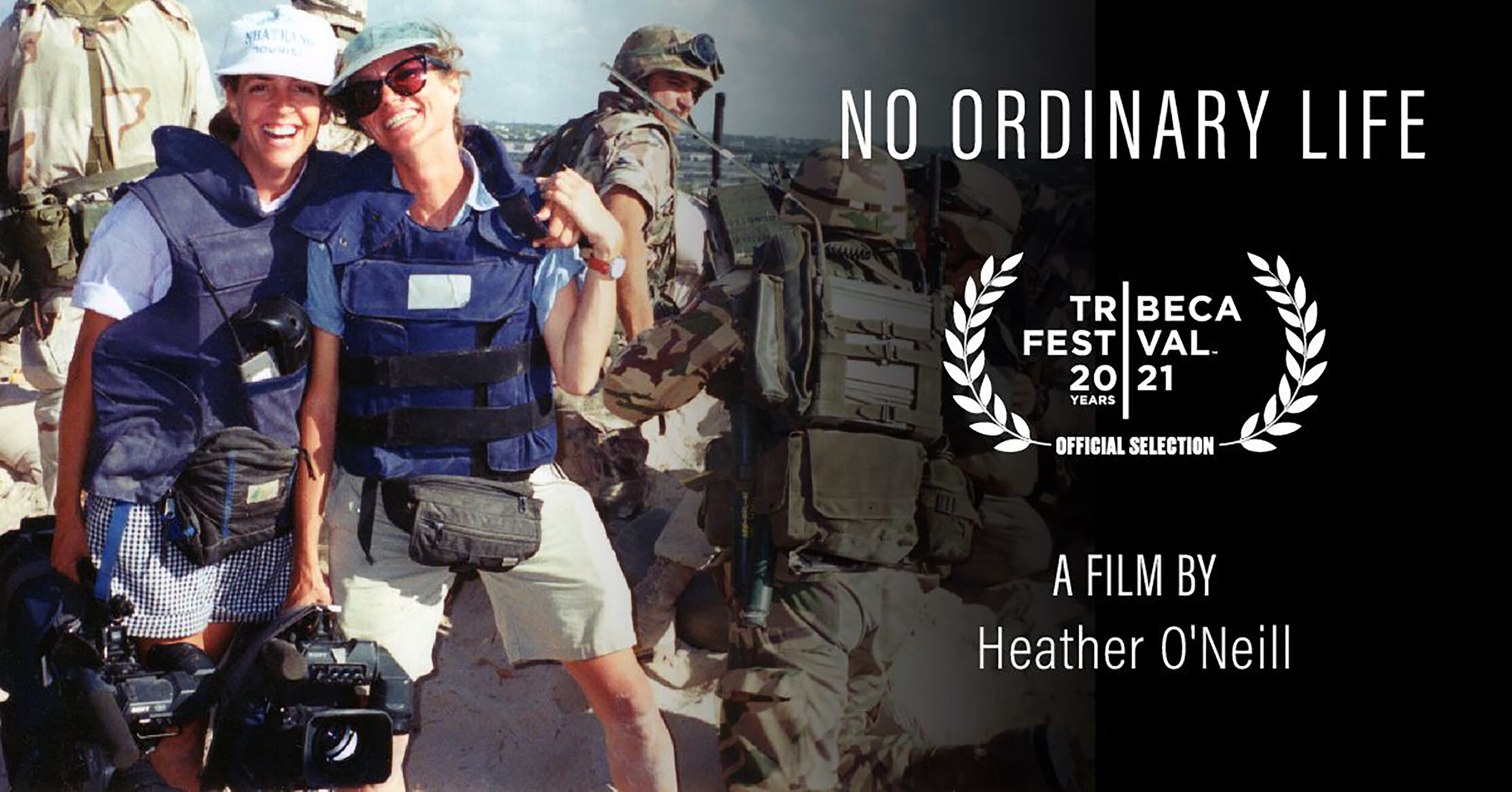Tribeca Film Festival: Life Through Film, Cherry Lemonade, And Blood & Glory
Photo / Video Credit: Courtesy of Tribeca Festival
Founded by Jane Rosenthal and Robert De Niro in 2001, the Tribeca Film Festival is a coveted film festival that takes place each summer in New York City. It showcases a diverse and awe-inspiring selection of films, podcasts, art, music, games, and immersive programming, and attending it is something many people only dream about. The festival’s 20th anniversary couldn’t have come at a more moving time, as, like everything else, the 2021 event looked slightly different. While the festival ushered in live events, movie enthusiasts across the world can now enjoy the festival from the comforts of their own homes.
Photo / Video Credit: Courtesy of Tribeca Festival
Tribeca at Home offered 192 films, immersive events, and TV shows, free from social fuss, and viewers could watch from anywhere they wanted. While I am excited for the world to reopen as number of people vaccinated grows, Tribeca at Home gave me the opportunity to participate in the festival from 500 miles away, in Raleigh, North Carolina. I had the pleasure of viewing three films, “Cherry Lemonade,” “Blood and Glory,” and “No Ordinary Life,” and here is everything you need to know about these films.
“Cherry Lemonade” is written and directed by award winning filmmaker and third year NYU Tisch School of Arts student, Aisha Ford. She has written and directed several short films that have broadcasted on platforms such as the American Black Film Festival and have been screened at multiple film festivals across the country. As a black filmmaker, she strives to create stories that embrace African Americans as human beings, while at the same time reflect up in her own life as an African American woman.
Photo / Video Credit: Courtesy of Tribeca Festival
“As a filmmaker, I yearn to bring my childhood lessons to the big screen and make films that represent the community and home I remember in a way that champions its complexity and authenticity,” Ford said regarding the film.
Photo / Video Credit: Courtesy of Tribeca Festival
“Cherry Lemonade” received a grant from Spike Lee, who referred to Ford as “a true filmmaker.” In the 10-minute short, Eris Baker plays eleven-year-old Phoenix, who has always dreamed of being the “it girl” in her neighborhood, but she can’t seem to overcome her tomboy side. After her abusive older brother Kurt, played by Skylan Brooks, breaks a promise, she sets out to explore the word around her. This coming-of-age story explores themes of independence, loneliness, and bravery as Phoenix learns to hold her own in a harsh world with even harsher people.
Photo / Video Credit: Courtesy of Tribeca Festival
The film screened online and in person at the Hudson Yards Public Square and Gardens as part of Tribeca Festival’s “Shorts: Shining Stars,” which celebrated Juneteenth. Other shorts in the category included “Waves,” “Magnolia Bloom,” “Silence,” “Enough,” and “19 Seventy Free: Part 1.”
“Blood and Glory” is a 12-minute short directed by Satinder Kaur, a United States Army veteran, whose only constant in life has been her love for movies. After being forbade to study film by her parents, Kaur was forced to seek other routes to the money and agency she needed in order to follow her dream, which is where she landed her spot in the U.S. Army, in the middle of a war she didn’t fully believe in. After withstanding constant change throughout her childhood, and the adversities of war, Kaur received an MFA in film production from USC. She was mentored by “Jurassic World” writer and director, Colin Treverrow as she finally began her career in filmmaking. As someone who has traveled the world and experienced many different cultures, she aims to tell stories that resonate globally but are uniquely American through her films.
Photo / Video Credit: Courtesy of Tribeca Festival
“Blood and Glory” follows the story of two homeless veterans, Jackie and Rosa. Jomarla Melancon (Jackie) and Shara McGlinn (Rosa) give moving performances as watchers follow their friendship through adversity, discrimination, and even the wrath of nature itself. Jackie cares for Rosa, who was her battle buddy and now suffers from severe PTSD. The women’s moral compasses and bonds of friendship are tested throughout the short, making for a dramatic, soul-stirring story.
Photo / Video Credit: Courtesy of Tribeca Festival
This short was screened online and in-person at Brooklyn Commons at MetroTech, as part of “Shorts: Without Borders,” described as compelling dramas from here and abroad. Other films in this series include “Grey Zone,” “Cru – Raw,” “Liliu,” “Soup,” “The Black Veil,” and “Vera.”
Both “Cherry Lemonade” and “Blood and Glory” are a product of Women In Media’s CAMERAderie Initiative. The platform supports emerging, women, women-identifying, and gender non-conforming filmmakers of all experience levels. Shorts produced by the organization have at least 70% Women In Media member involvement and help to make incredible films like “Cherry Lemonade” and “Blood and Glory” possible.
The final film I watched was “No Ordinary Life,” one of the most moving movies I have ever seen. The 75-minute film was directed and produced by Heather O’Neill, who, during her college days, was gripped by the demonstrations in Tiananmen Square, China. She was inspired by the power of storytelling, and became a journalist, constantly seeking the truth. “No Ordinary Life” is O’Neill’s director debut on a feature documentary film.
Photo / Video Credit: Courtesy of Tribeca Festival
Screened as part of the Tribeca Online Premiere, “No Ordinary Life” features interviews and follows frontline camera women Maria Fleet, Jane Evans, Cynde Strand, Mary Rogers, Margaret Moth, and Christiane Amanpour through their journey of changing the way the world viewed war through their work behind the camera, amidst chaos. The film forces viewers to experience life behind a camera, on the frontlines of wars, revolutions, and disasters.
Photo / Video Credit: Courtesy of Tribeca Festival
Despite grueling scenes of inhumanity, exposing the horrors of war, O’Neill created balance within the film, showing the camaraderie created among the women. These friendships enabled Fleet, Evans, Strand, Rogers, Moth, and Amanpour to endure the terrors of war in the sexist, male-driven industry of frontline documentation. The film is a sublime mix of terror and beauty, telling their stories and images that help to define history.
Photo / Video Credit: Courtesy of Tribeca Festival
While experiencing the Tribeca Film Festival in-person is the dream of many, Tribeca at Home creates a personal cinema experience unique to your viewing preferences. The three films I watched were all beautifully done, and I look forward to seeing more movies from these directors in the future at the festival.
Article by Katie Harkey, Contributor, Photobook Magazine
Tearsheets by Kenisha Seth, Contributor, Photobook Magazine













